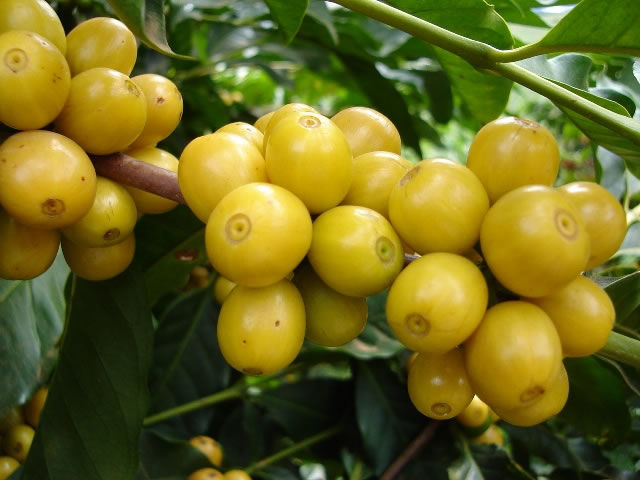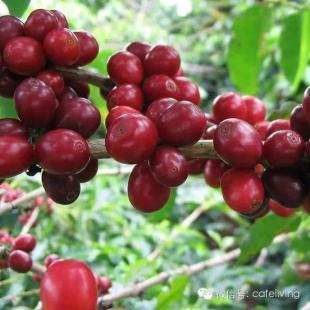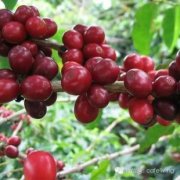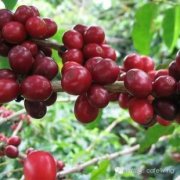Yemeni Shanna Nimoka Coffee introduces the main threat targets of Yemeni Coffee
For professional baristas, please follow the coffee workshop (Wechat official account cafe_style)

Yemeni Shannani
It is not easy to grow coffee in Yemen. Most farmland grows Qat grass, which is said to have a mild and refreshing effect. This plant absorbs water from the ground and breaks the underground aquifer. Growing coffee is not the same as hoping that some changes can be made to stop farmers from growing cat grass.
But Qat's profit is tens of times that of coffee, and coffee beans can only be persuaded by the government to keep a small area under Qat. Maybe this also gives you a lot of room to imagine.
Yemeni Sanani is located in the capital area, where coffee is grown on terraces. There is no data to verify the wild varieties. Shannani's biggest feature is raw beans with a fermented wine aroma, which is not found in other countries after being calm and full of fermented wine.

Property Characteristics: farm characteristics
Farm farm name: Small producers small producing group
Grade grade: naturally dried Arabica beans, no regulatory body, no grading system
Region producing area: Sana'ani Shanani
Country countries: Yemen Yemen
Altitude altitude: 1650 m
Certification certification: without certification, all coffee is grown organically in accordance with the ancient method, and pesticides containing chemicals are not used.
Coffee Characteristics: coffee characteristics

Variety varieties: 10 special native mocha species are mainly Jaa'di,Taffahi and Dawairi.
Processing System treatment: Method Red ripe cherries dried on Africa Bed ripe cherry fruits were dried in an African (sun) elevated bed.
Harvest period harvest time: the main crop harvest period is from October to December, and the second harvest is April in some producing areas.
Top Jury Descriptions judge's comment: the baking degree measured by the cup for 60 seconds at the beginning of the first explosion (Cinnamon)
Aroma aroma / flavor flavor: banana, spices, cinnamon, cloves, bergamot, maple syrup, longan, chocolate
Acid value: citrus, plum, cherry, tartaric acid
Complex complexity and other other: rose perfume, creamy taste mellow, caramel sweet taste, lingering fruit wine taste
Important Notice :
前街咖啡 FrontStreet Coffee has moved to new addredd:
FrontStreet Coffee Address: 315,Donghua East Road,GuangZhou
Tel:020 38364473
- Prev

Introduction to the unique flavor of mocha coffee in Haras, Yemen
Professional barista communication please pay attention to the coffee workshop (Wechat official account cafe_style) Haras Harasi of Yemen is from a small coffee producing area near Eshmael, in fact, their coffee is often sold as Eshmael, the area is towering and desolate terrain, all the coffee grows in terraced fields, what a magical scene, there are trace drugs in the oasis on the mountains.
- Next

Introduction to the unique natural growth method of Yanahi in Yemen's Shanani region
Professional barista exchanges, please pay attention to coffee workshop (Weixin Official Accounts cafe_style ) Yemen Yana Xi Yemen is likely to be the first country in the world to take coffee as cash crop. It is said that coffee was introduced by Muslim Sufi pilgrims in the 6th century. Yemen's coffee culture is different from other regions. Exporters do not buy directly from farms, but from large markets in the middle.
Related
- Detailed explanation of Jadeite planting Land in Panamanian Jadeite Manor introduction to the grading system of Jadeite competitive bidding, Red bid, Green bid and Rose Summer
- Story of Coffee planting in Brenka region of Costa Rica Stonehenge Manor anaerobic heavy honey treatment of flavor mouth
- What's on the barrel of Blue Mountain Coffee beans?
- Can American coffee also pull flowers? How to use hot American style to pull out a good-looking pattern?
- Can you make a cold extract with coffee beans? What is the right proportion for cold-extracted coffee formula?
- Indonesian PWN Gold Mandrine Coffee Origin Features Flavor How to Chong? Mandolin coffee is American.
- A brief introduction to the flavor characteristics of Brazilian yellow bourbon coffee beans
- What is the effect of different water quality on the flavor of cold-extracted coffee? What kind of water is best for brewing coffee?
- Why do you think of Rose Summer whenever you mention Panamanian coffee?
- Introduction to the characteristics of authentic blue mountain coffee bean producing areas? What is the CIB Coffee Authority in Jamaica?

